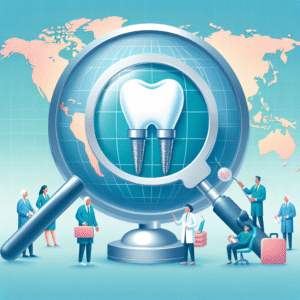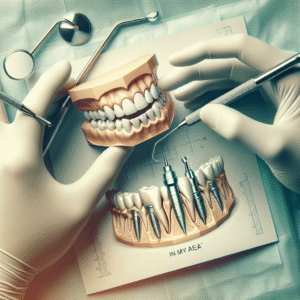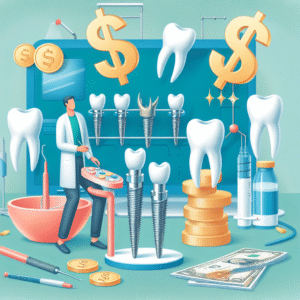All-on-4 Dental Implant Procedure: Myth Debunking
Dental implant technology has revolutionized restorative dentistry, offering patients a permanent solution for missing teeth. Among the most advanced techniques is the All-on-4 dental implant procedure, which provides a full-arch restoration with just four implants. Despite its popularity, misconceptions persist, leading to confusion and hesitation among potential candidates. This article aims to debunk common myths surrounding the All-on-4 procedure while exploring related treatments like Full-Arch Dental Implants, Teeth-in-a-Day / Same-Day Implants, Implant-Supported Dentures, Zygomatic Implants, and Bone Grafting for Dental Implants.
Myth 1: All-on-4 Implants Are Only for the Elderly
Reality: While older adults often seek tooth replacement solutions, the All-on-4 procedure is suitable for anyone with significant tooth loss or decay, regardless of age. Younger patients who have suffered from periodontal disease, trauma, or congenital tooth loss can also benefit. The key factor is overall oral health, not age.
Additionally, Full-Arch Dental Implants provide a long-term solution that prevents bone loss—a concern for patients of all ages. Unlike traditional dentures, implants stimulate the jawbone, maintaining facial structure and preventing premature aging.
Myth 2: The Procedure Is Extremely Painful
Reality: Thanks to modern anesthesia and sedation dentistry, the All-on-4 procedure is far less painful than many assume. Most patients report mild discomfort, comparable to a tooth extraction. Post-operative pain is manageable with prescribed medications and typically subsides within a few days.
For those requiring additional support due to bone loss, Zygomatic Implants offer an alternative. These longer implants anchor into the zygomatic (cheek) bone, bypassing the need for extensive Bone Grafting for Dental Implants, which can prolong recovery.
Myth 3: All-on-4 Implants Are Unaffordable
Reality: While the upfront cost may seem high, All-on-4 implants are cost-effective in the long run. Traditional dentures require frequent adjustments and replacements, whereas implants last decades with proper care. Many clinics also offer financing options, making the procedure accessible.
Comparatively, Implant-Supported Dentures provide a middle ground for budget-conscious patients, combining the stability of implants with the affordability of dentures. However, All-on-4 implants eliminate the need for adhesives and offer superior functionality.
Myth 4: Recovery Takes Months
Reality: The Teeth-in-a-Day / Same-Day Implants concept is central to the All-on-4 procedure. Patients leave the clinic with a temporary prosthetic attached to their implants, allowing immediate functionality. Final restorations are placed after healing (typically 3-6 months), but the recovery period is far shorter than traditional implants requiring bone grafts.
For patients with severe bone atrophy, Bone Grafting for Dental Implants may be necessary before conventional implants. However, All-on-4 implants often avoid this step by utilizing strategic angulation to maximize existing bone.
Myth 5: Implants Look and Feel Fake
Reality: Modern dental prosthetics are custom-designed to match natural teeth in shape, color, and function. All-on-4 restorations are crafted from high-quality materials like zirconia or acrylic, ensuring a lifelike appearance. Patients often report improved confidence and comfort compared to removable dentures.
Similarly, Implant-Supported Dentures provide a natural feel but may lack the permanence of All-on-4. The latter’s fixed design eliminates slippage, allowing for unrestricted eating and speaking.
Myth 6: Anyone Can Get All-on-4 Implants
Reality: While All-on-4 is versatile, not everyone qualifies. Heavy smokers, uncontrolled diabetics, or those with compromised immune systems may face higher risks. A thorough evaluation by a dental professional is essential to determine candidacy.
For patients with insufficient jawbone density, Zygomatic Implants or Bone Grafting for Dental Implants may be recommended. These alternatives ensure even those with significant bone loss can achieve stable, functional teeth.
Myth 7: Maintenance Is Complicated
Reality: All-on-4 implants require the same care as natural teeth—brushing, flossing, and regular dental check-ups. Unlike dentures, there’s no need for messy adhesives or overnight soaking. This simplicity makes them a practical choice for busy individuals.
Myth 8: Implants Frequently Fail
Reality: With a success rate exceeding 95%, All-on-4 implants are highly reliable. Failure is rare and usually linked to poor oral hygiene or pre-existing health conditions. Proper aftercare ensures longevity, often lasting a lifetime.
Conclusion
The All-on-4 dental implant procedure is a groundbreaking solution for full-arch restoration, debunking myths about pain, cost, and eligibility. Whether considering Full-Arch Dental Implants, Teeth-in-a-Day / Same-Day Implants, or Zygomatic Implants, patients now have more options than ever. By consulting a qualified implant specialist, individuals can make informed decisions tailored to their needs, restoring both function and confidence in their smiles.
Frequently Asked Questions
Q1: What are the most common myths about All-on-4 dental implants?
A1: Common myths include claims that the procedure is extremely painful, only for older adults, requires excessive maintenance, or has a low success rate—all of which are untrue.
Q2: Is the All-on-4 procedure painful?
A2: No, the procedure is performed under anesthesia, and most patients report minimal discomfort during recovery, which is manageable with prescribed medication.
Q3: Are All-on-4 implants only suitable for seniors?
A3: No, they are a viable option for any adult with significant tooth loss or decay, regardless of age, as long as they meet the necessary health criteria.
Q4: Do All-on-4 implants require special care compared to natural teeth?
A4: No, they can be maintained with regular brushing, flossing, and dental check-ups—just like natural teeth—though avoiding overly hard foods is recommended.




